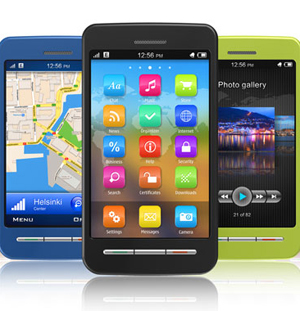Seven ways to stop your mobile app becoming a flop

80 per cent of brand's apps fail - here's how to make sure yours isn't one of them...
For many businesses, the rapidly expanding mobile app market - UK app downloads are set to reach 17.7 billion in this year - is seen as a golden opportunity to connect with consumers.
However, cracking the mobile app market might not be as easy as big brands think.

Cracking the mobile app market is not a simple case of putting your website on an appPhoto: Shutterstock
According to research by consultants Deloitte, apps designed by global consumer and healthcare brands are failing to capture the interest of the public.
The study found that less than one per cent of apps designed by such brands received more than a million downloads since launch and only 20 per cent received over 1,000 downloads.
Or, to put it another way, 80 per cent of apps created by brands have essentially failed.
However, according to Deloitte, there is still great potential for brands to exploit the mobile app market with 45 per cent of smartphone owners downloading at least one app per week.
How can you make sure your app makes the cut?
1. Just putting your site on an app doesn't work
According to Matt Guest, strategy consultant at Deloitte, apps that have a "lack of utility or lack of function" are the most likely to fail.
"Apps that are just a catalogue of products or fail to use any functionality of the smartphone are, according to our survey, fairly unlikely to succeed," Guest told silicon.com.
"Just putting your website on to an app doesn't really work. Consumers have far higher expectations, particularly the smartphone customer base in the UK, which tend to be more technologically able people."
2. Don't assume all smartphone users are the same
Marketers often make the mistake of assuming an app that works on an iPhone will work in the same way on an Android phone or a BlackBerry, according to Guest.
"An individual smartphone operating platform delineates a channel of people - just like a TV channel, where BBC One has a different audience to ITV," he said.
Brands must therefore think carefully about the demographic they want to reach and which smartphone operating system provides the best way of doing so.
3. Make sure your app is bug-free
While it may sound obvious, many apps fail because consumers experience problems using the app - leading to bad reviews and fewer downloads.
"Bugs in an app for a brand are far less forgivable than bugs in a high-end game," Guest said.
"If you turn it on the first time and it doesn't...
...work then it's not going to succeed because the customer is going to become disengaged with it," he said.
4. Stick to the original marketing message
In developing fun and engaging apps, Guest cautions that apps can often go 'off-message' which, from a marketing point of view, defeats the object of developing the app in the first place.
"Some of the failures we saw were where the application - very often gaming-type applications - deviated from the messages that were being shown on other channels," Guest said.
"So if you've got a bank that's got a game based on flying around a water slide and the advert is not obviously linked to that then you're not going to gain any extra marketing because the customer is not going to associate that thing with you over the long term," he said.
Before developing an app, brands should make sure they have defined their audience and the message they want to give out and place that at the heart of their app, Guest advised.
Skycanner's app gets the thumbs-up for simplicityImage: Skyscanner
5. Simplify processes
The most successful apps are those that offer a simplified version of existing services, according to the consultant.
"You can reduce the amount of functionality you are offering on your website or even in your store so you just get to the core of the user experience - you are serving the customer's needs."
Guest cited Skyscanner as an example of a brand that has developed a successful app by reducing functionality.
"The Skyscanner app is a really great experience because what they've done is effectively taken away a lot of the extraneous features and options and reduced it down to 'I want to go from this place to this place on this date'. Then you can use a couple of sliders - it's very interactive - to decide exactly your parameters, eg, 'I want to travel in the morning or the afternoon'," he said.
6. Exploit what the smartphone can do
Making full use of smartphone capabilities is an important factor in the success of an app.
According to Guest, location-based technology is playing an increasingly important role in app development, with Deloitte's research finding that on average apps that incorporate location-based services are far more likely to be downloaded than those that don't.
Apps that tell you where the nearest cash machine is are an example of "an app you might go back to time and time again, likewise finding out where the nearest branch of Starbucks is or the equivalent coffee shop of choice," he said.
"It's actually quite simple stuff but it can become quite pervasive quite fast."
However, app developers should be wary of falling into the classic trap of using technology for technology's sake and in doing so providing useless functionality.
Guest cited the example of a hotel chain app, which was aimed at business travellers who had already booked their rooms.
"The only functionality the application had was that you could push a button and it would use your GPS co-ordinates to tell you where the nearest hotel was - but of course you've already pre-booked so that's useless," Guest said.
7. Adopt emerging technologies
With the app market full of relatively undifferentiated apps, marketers need to focus on ways to use emerging technologies such as NFC and object recognition to set themselves apart.
"Using new or different functions to create a different experience will be where people will differentiate themselves," Guest said.
When it comes to NFC, the ability of app developers to use the contactless technology will depend on "the way the banking platform gets involved with NFC", according to Guest, but developers should be looking at ways it can be included now.